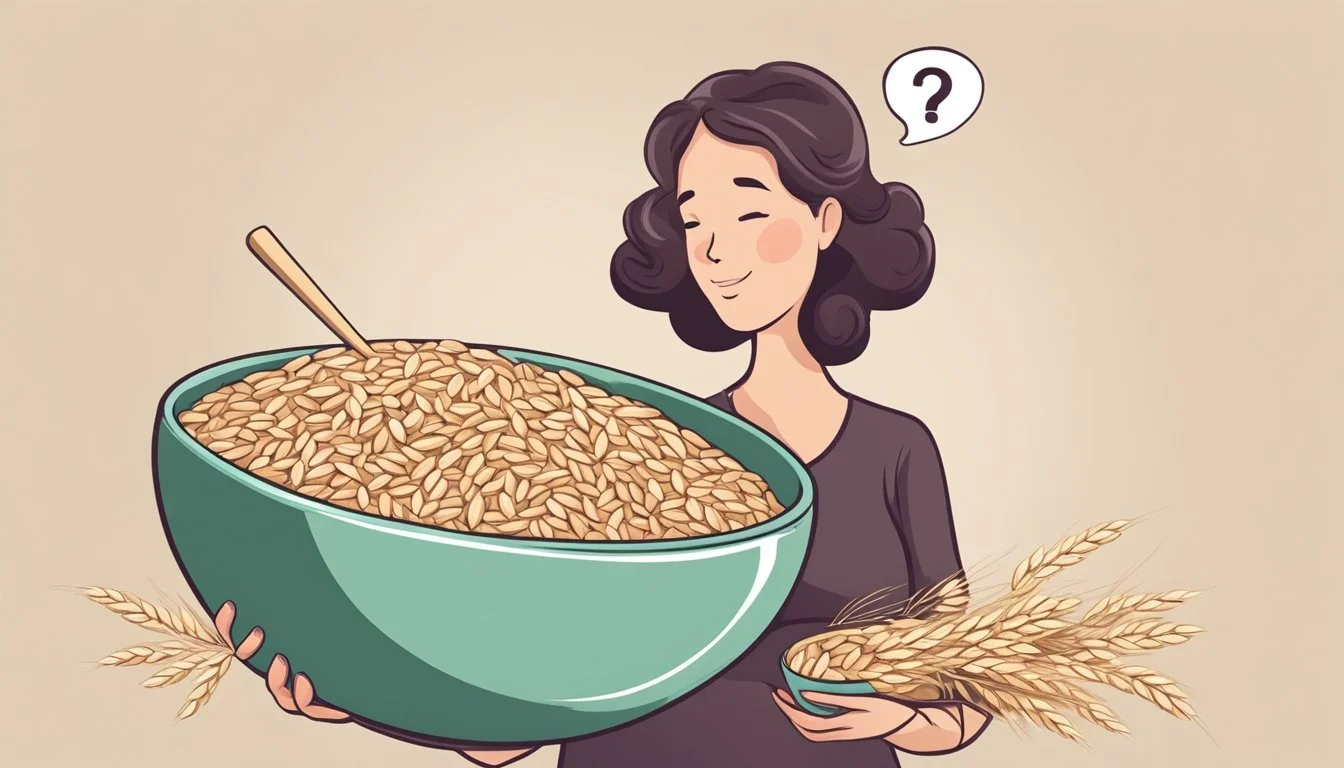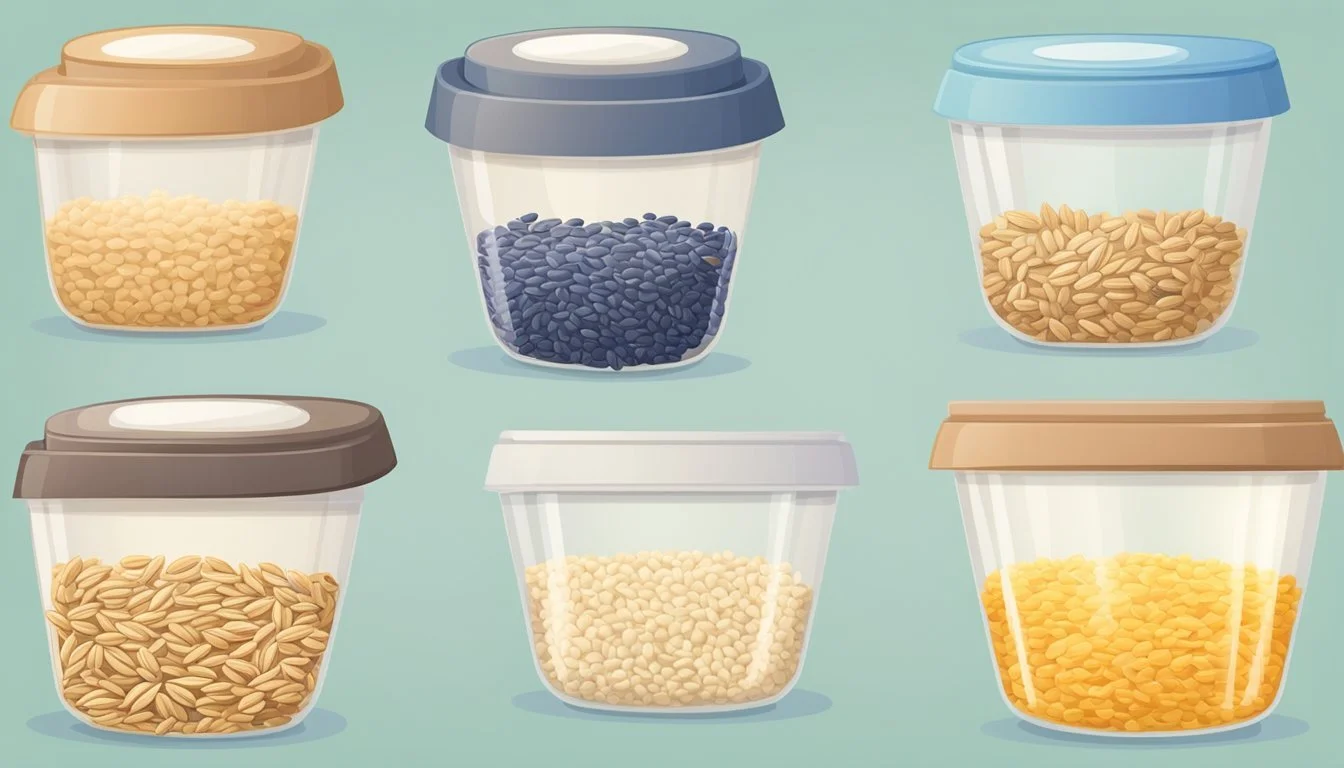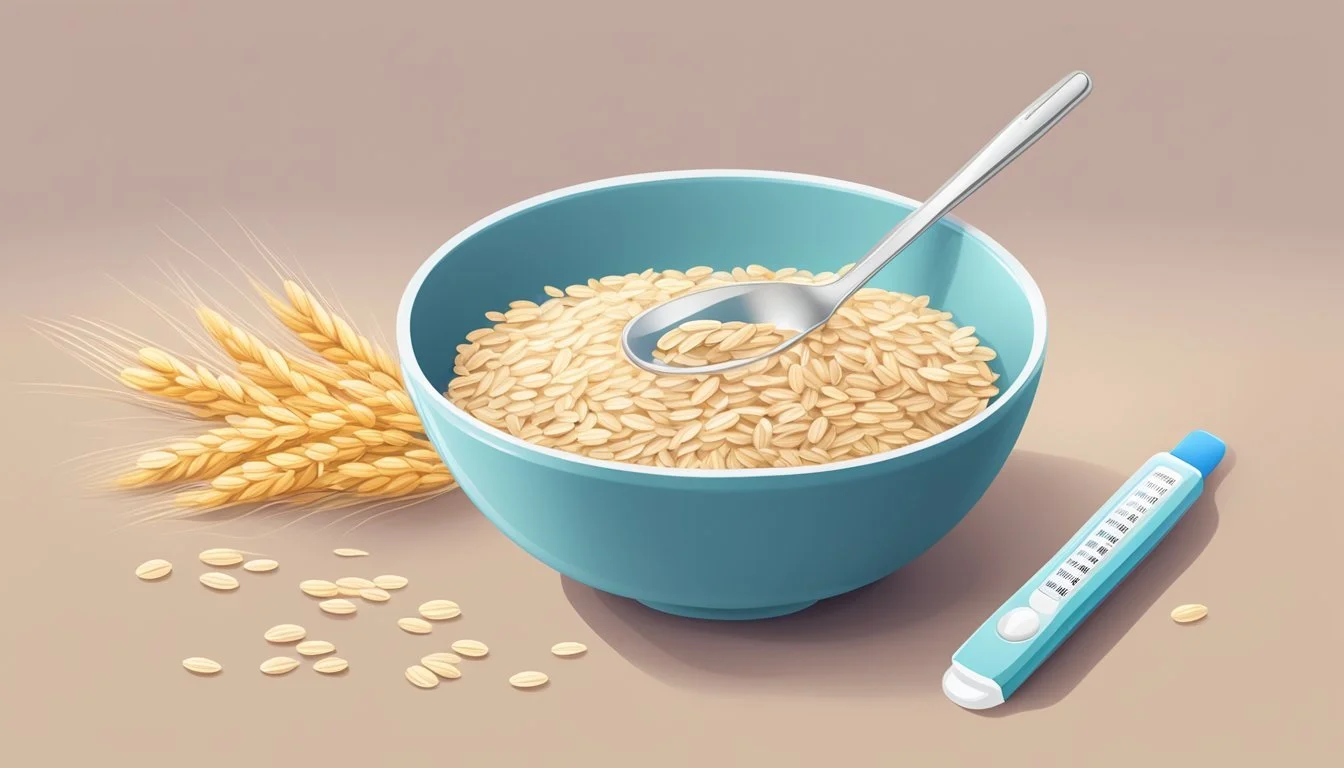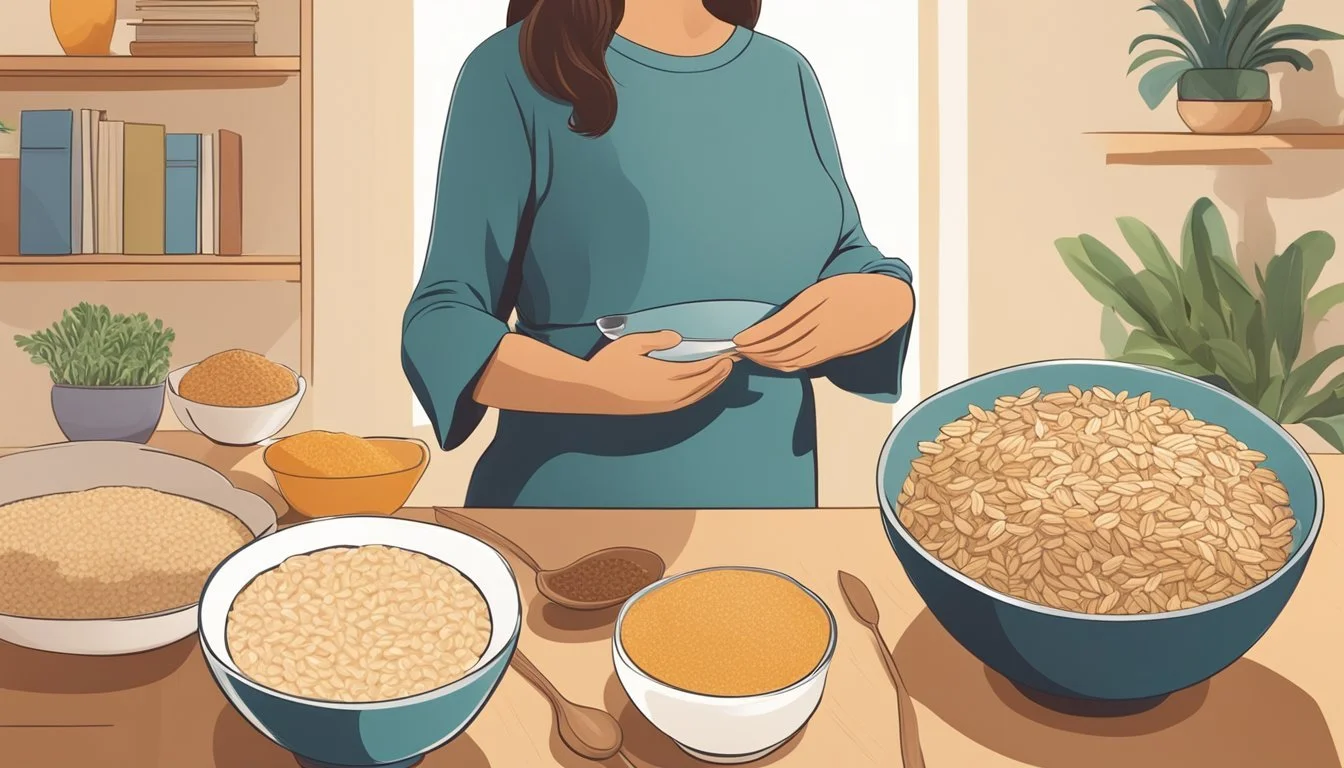Is It Safe to Consume Raw Oats While Pregnant?
Unpacking Nutritional Facts and Myths
Consuming oats during pregnancy is widely considered safe and beneficial. Oats are a nutritious whole grain rich in complex carbohydrates, fiber, essential vitamins, and minerals such as iron, vitamin B1, and vitamin E, which are valuable for both the expectant mother and the developing fetus. These nutrients contribute to fetal brain development, support the mother's immune system, and aid in maintaining healthy skin and bones.
While raw oats are technically safe to eat during pregnancy, it is generally recommended that they be cooked to ensure they are easier to digest and to minimize any potential risk of foodborne illnesses. Cooking oats can also enhance their texture and flavor, making them a more palatable option for those who may experience increased sensitivity to foods or have morning sickness during pregnancy.
It is essential for pregnant individuals to maintain a balanced diet, and oats can be a versatile addition to that diet. They can be served as a classic oatmeal, mixed with fruits and nuts for added nutrition, or incorporated into various recipes. Regardless of the preparation method, expectant mothers should always ensure that the oats and accompanying ingredients are clean and free from contaminants to promote a healthy pregnancy.
Nutritional Profile of Oats
Oats are a nutritional powerhouse, providing a rich blend of vitamins, minerals, and macronutrients. They are a versatile grain commonly consumed by pregnant women due to their dense nutrient content.
Vitamins and Minerals in Oats
Oats contain a variety of vitamins and minerals essential for overall health. They are particularly high in magnesium, phosphorus, and selenium. These minerals contribute to bone health and metabolic functions. Additionally, oats are a good source of B vitamins such as niacin, B6 (pyridoxine), ribloflavin, and vitamin B1 (thiamine) which are crucial for energy production and the functioning of the nervous system.
Iron: Supports oxygen transport in blood
Calcium: Vital for bone health
Potassium: Regulates fluid balance
Zinc: Aids in immune function
Manganese: Important for enzyme reactions
Carbohydrates and Energy
Oats are primarily composed of carbohydrates, particularly complex carbohydrates which break down slowly in the body, helping to maintain stable energy levels. One cup of raw oats provides roughly 307 calories, with about 66.3g of carbohydrates. These carbohydrates are instrumental in supplying the body with sustained energy, especially beneficial during pregnancy when energy needs increase.
Proteins and Fibers
The protein content in oats is significant, with around 16.9g per 100g serving, contributing to the growth and repair of tissues, which is vital during pregnancy. Oats are also rich in dietary fibers, especially a soluble fiber called beta-glucan, known for its ability to help regulate blood sugar levels and contribute to digestive health.
Fats and Antioxidants
While lower in fats, with approximately 6.9g per 100g, the fats present in oats are predominantly healthy unsaturated fats that are important for fetal development. In terms of antioxidants, oats contain vitamin E and other compounds that help protect cells from damage. These antioxidants can be beneficial for both the mother and the developing fetus.
Health Benefits of Consuming Oats During Pregnancy
Oats are a nutritious staple in a prenatal diet, offering a suite of benefits that cater to both maternal and fetal health. They are rich in fiber, iron, and other vital nutrients essential for a growing baby and the mother's well-being.
Digestive Health
Oats contain soluble fiber that aids in digestion and can help combat pregnancy constipation. It facilitates smooth bowel movements and helps prevent the discomfort of a slow digestion.
Blood Sugar and Gestational Diabetes
The complex carbohydrates in oats lead to a gradual increase in blood sugar levels, which is beneficial for managing gestational diabetes. Regular consumption can help in maintaining stable blood sugar levels, which is critical during pregnancy.
Cardiovascular and Bone Health
Oats are heart-healthy due to their ability to lower blood pressure. They are also rich in calcium, contributing to bone health. Both cardiovascular and bone health are crucial during pregnancy, as the mother's body undergoes significant changes.
Immune System and Energy Levels
Rich in vitamins B1 and E, oats support the immune system and sustain energy levels. A hearty oatmeal breakfast can provide lasting energy and help maintain a healthy immune response during pregnancy.
Fetal Development
The presence of iron and folate in oats is significant for fetal development. Iron aids in preventing anemia, while folate, also known as folic acid, is essential for the baby's brain and spinal cord development.
Safety and Recommendations for Oat Consumption
During pregnancy, a woman's diet is pivotal for both her health and the health of her unborn child. Raw oats can be a nutritious option, but understanding safety, appropriate quantity, and preparation methods warrants careful consideration.
Raw Oats Safety
When considering eating oats during pregnancy, it's crucial to ensure they are pasteurized to eliminate any potential pathogens that could harm the mother or fetus. Raw oats typically don't carry a high risk of contamination, but the safety can increase with oats that have been treated to remove bacteria. It's also important for pregnant women to be aware of their body's responses to oats, as for some, they may cause diarrhea or irritation, especially if they have a sensitive digestive system.
Quantity and Frequency of Intake
Although oats are nutritious, they should be consumed in moderation to prevent excessive weight gain. A good measure is to keep the serving size to about 1/2 cup of dry oats per day. This portion provides ample fiber, which is beneficial for digestion, without excessively adding to daily caloric intake. During the first trimester, when pregnancy cravings and morning sickness are common, smaller, more frequent servings may be more tolerable.
Preparation Methods and Toppings
Raw oats can be made safer and more digestible by combining them with liquids such as milk (including almond or cashew milk) or yogurt. This can be done through preparation methods like making overnight oats:
Combine 1/2 cup of oats with 1/2 cup of milk or yogurt.
Add a pinch of salt and a teaspoon of chia seeds for extra nutrients.
For flavor, consider adding banana, apple, or blueberries for natural sweetness.
Toppings such as maple syrup, honey, or brown sugar should be used sparingly to avoid high sugar intake. Additionally, cinnamon can be a healthful spice addition that may help with glucose regulation. Remember, when adding toppings or mix-ins, prioritize pasteurized and well-washed ingredients to minimize any risk of foodborne illness.
Types of Oats and Their Suitability
When considering oat consumption during pregnancy, it's important to understand the various types of oats and their nutritional profiles. Oats are generally rich in proteins, fibers, and other nutrients which are beneficial for expecting mothers.
Rolled Oats
Rolled oats, also known as old-fashioned oats, are oat groats that have been steamed and flattened with large rollers. They offer a balance of convenience and nutritional benefits, being relatively quick to cook while retaining most of their fiber and protein content. Rolled oats are suitable for consumption during pregnancy as long as they are well-cooked.
Cooking Time: 3-5 minutes
Nutritional Benefit: Good source of proteins and fiber
Instant Oats
Instant oats are the most processed form of oats. They cook quicker than other types due to being pre-cooked, dried, and then rolled even thinner than rolled oats. While instant oats provide ease for a fast meal, the processing may reduce their fiber content and thus might not be as nutritionally robust as other forms.
Cooking Time: Under 2 minutes
Nutritional Benefit: Convenient, lower in fiber compared to other oats
Steel-Cut Oats
Steel-cut oats, sometimes known as Irish or pinhead oats, are oat groats that have been cut into two or three pieces and have a chewier, coarser texture after cooking. They take longer to cook but maintain more of their nutrients and natural texture. Steel-cut oats are a good choice for expectant mothers due to their high protein content and sustained energy release.
Cooking Time: 15-30 minutes
Nutritional Benefit: High in proteins and fiber, slow-release carbohydrates
Oat Flour
Oat flour is made by grinding whole oat grains into a fine powder. It can replace conventional flour in many recipes, offering a gluten-free alternative with additional nutritional benefits. Pregnant women can use oat flour to gain the nutritional advantages of oats in various recipes, ensuring a varied intake of essential nutrients.
Uses: Baking, thickening agent
Nutritional Benefit: Gluten-free, rich in nutrients found in whole oats
Implications for Specific Dietary Conditions
Consuming raw oats during pregnancy can have various implications depending on the mother’s dietary conditions. It is important to understand how raw oats can affect gluten sensitivity, interact with pregnancy-induced conditions, impact cholesterol and blood pressure, and influence calcium absorption and anemia.
Oats and Gluten Sensitivity
Those with gluten sensitivity may consider oats as an alternative grain. However, they should ensure the oats are certified gluten-free. Cross-contamination with gluten-containing grains is a common issue during the processing of oats. For pregnant women with celiac disease or non-celiac gluten sensitivity, this is crucial to prevent indigestion and other adverse reactions.
Pregnancy-Induced Conditions
Conditions like gestational diabetes may require a careful assessment of a pregnant woman's diet. The low glycemic index of raw oats can help regulate blood sugar levels, making them a good choice for those managing diabetes during pregnancy. Additionally, the high fiber content may alleviate constipation, a common concern during pregnancy.
Impacts on Cholesterol and Blood Pressure
The soluble fiber in oats can aid in lowering LDL cholesterol ("bad" cholesterol). This can be especially beneficial during pregnancy when women are more susceptible to cholesterol-related complications. Moreover, the potassium in oats can contribute to maintaining healthy blood pressure levels, mitigating the risk of pregnancy-induced hypertension.
Calcium Absorption and Anemia
While oats provide nutrients, they may also contain phytic acid, which can inhibit calcium and iron absorption. Pregnant women should pair raw oats with vitamin C-rich foods to enhance iron absorption, helping prevent anemia. Additionally, they may need to monitor their calcium intake to ensure adequate bone health for themselves and the fetus.
Organizing the nutrients found in oats and their relevance to the dietary conditions mentioned can help illustrate their significance:
Nutrient Benefit During Pregnancy Consideration Fiber Aids in digestion, prevents constipation May require gradual introduction to prevent gas and bloating Iron Prevents anemia Best absorbed when taken with vitamin C-rich foods Calcium Essential for bone health Phytic acid in oats can inhibit absorption; balance with other calcium sources Potassium Helps maintain healthy blood pressure Supports overall cardiovascular health
By considering these implications, pregnant women can make informed decisions about including raw oats in their pregnancy diet.
Recipes and Alternative Oat-Based Foods
During pregnancy, cravings may lead an expectant mother to seek various ways of enjoying oats. The following oat-based recipes and alternatives provide nutritional value and can be tailored for weight management purposes.
Oatmeal Recipes
Oatmeal, a warm and comforting meal, can be an excellent choice for pregnant women who need a nutritious and fulfilling breakfast or snack. A basic recipe includes boiling oats in water or milk until they reach a creamy consistency. For enhanced nutrition:
Add fruits such as bananas or berries
Stir in nuts like almonds or walnuts for healthy fats
Include seeds such as chia or flaxseed, which are rich in omega-3 fatty acids
Overnight Oats
Overnight oats are a convenient alternative that requires minimal preparation. They provide a balance of carbohydrates, protein, and fiber, essential for maternal nutrition.
How to prepare overnight oats:
In a jar, combine equal parts raw oats and your choice of milk or a dairy-free alternative.
Add a spoonful of yogurt for probiotics and a creamier texture.
Sweeten with honey or maple syrup, if desired.
Include your favorite fruits for added vitamins and to satisfy sweet cravings.
Refrigerate overnight, allowing the oats to absorb the liquid and soften.
Healthy Snacks
For pregnant women focusing on nutrition and weight management, healthy oat-based snacks can be a smart addition to their diet. Some options include:
Granola Bars: Homemade granola bars allow control over the ingredients, ensuring the inclusion of wholesome components like oats, nuts, and dried fruits. Opt for less sugar and include honey or agave as natural sweeteners.
Oat Porridge: A lighter version of oatmeal that can be flavored with cinnamon, vanilla, or fruit preserves.
Oat-Based Snack Balls: Combine oats with nut butter, honey, and mix-ins like coconut flakes or mini chocolate chips, then roll into small balls for a quick bite.
Conclusion
Consuming raw oats during pregnancy is generally considered safe as long as they are handled and prepared properly. It is essential to ensure that raw oats are clean and free from contaminants. One popular and safe option for pregnant individuals is overnight oats, where raw oats are soaked in a liquid like milk or a milk alternative.
The benefits of including raw oats are notable, as they are a good source of essential nutrients. Oats provide complex carbohydrates and proteins, and are rich in iron, fiber, and folic acid. These elements contribute to a healthy pregnancy diet by aiding digestion, supporting blood health, and potentially reducing the risk of birth defects.
However, it is crucial to consume oats in moderation to avoid possible side effects, such as indigestion or diarrhea. A balanced approach is recommended, incorporating oats into a diverse diet that meets all the nutritional requirements during pregnancy.
Individuals must always consult with a healthcare provider before making any significant changes to their diet, especially during pregnancy. This ensures that the consumption of raw oats or any other food aligns with their health needs and the well-being of their developing baby.







